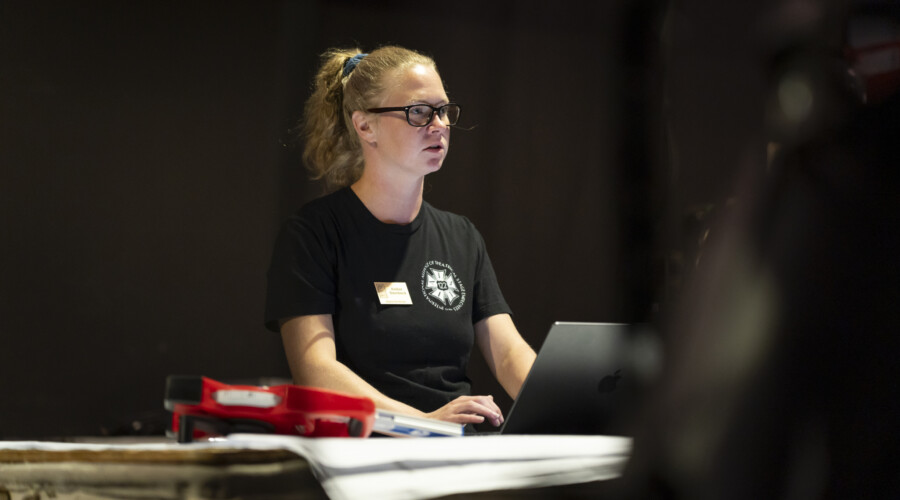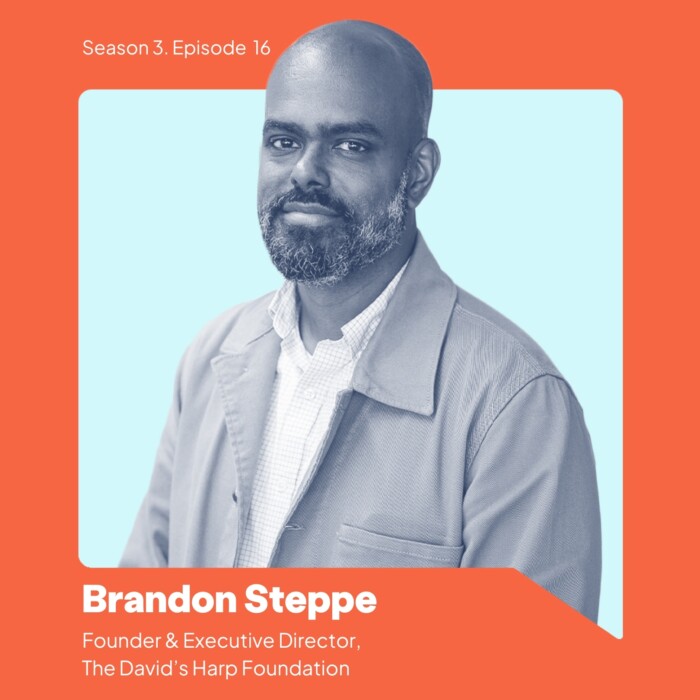For example, I grew up also being a woman, and this is a very male-dominated field. So, when I was 18, I pushed myself a lot harder physically and lifted things I shouldn’t have or should have gotten help with. I did things that I wasn’t totally comfortable with and should have stood my ground and asked somebody else to do it.
So, I really do push the safety aspect — to keep their body safe, to speak up for themselves. Yes, try to push yourself, but don’t do it too hard. And I think that I have a good balance with that. I actually had an intern who does not deal well with heights, and he thanked me a couple of weeks back for always finding ways to encourage him. Anytime I think of something that is height-related, but that maybe he would feel safe doing, I always try to bring it up to him, like, “hey, I’m not pushing you, but do you want to try doing this to see if you can step outside of your comfort zone?”
The biggest thing that this internship teaches the younger people is agency and ownership. We are around and definitely there to help them, but we try to push them to make decisions as much as possible, and really take control of what they are doing.
One of the great things about tech is you really do end up doing a little bit of everything. You learn physically how things work and how to do something safely, how to plug in a light or use a drill motor. But you also need to learn creative problem-solving skills and customer service is a huge skill.
All the repeat clients really help with the sense of community. Over the 13 years that I’ve been here, I’ve watched little kids grow up and go on to become professional dancers or actors. It definitely encourages me to be more invested in what’s going on in my community.
The thing that I ultimately hope they get out of the internships here, regardless of whether they stay in the industry or move on to something else, is just a love for the arts. That was my biggest takeaway from when I was in the internship — I already loved the arts — and it proved to me that I can love the arts and also have a career, make a living, be happy doing this, and I don’t have to suffer in a cubicle.
It’s important to pay our interns because people already have to work too many jobs just to make ends meet. And if they can’t get a paid position somewhere to learn and grow their skills, they’re never going to learn them in the first place. And we would have so many people who would love to do this, but they just can’t afford to do it without pay.
We all need to feed ourselves and keep a roof over our head. And if our passions don’t align with getting a paycheck, the passions go by the wayside, and that’s a shame.
Luckily this internship here has always been a paid internship. So, most of what we’re hoping to do with the Prebys grant is pay for new gear so interns can learn and keep up with all of the current technology, because we are a bit behind on that. It is, unfortunately, a disservice to some of our interns where they end up graduating from the internship but haven’t really learned that major part of our industry. We are utilizing the grant to get more robust and frequent training to put the younger people and interns on these shows to grow their skills.”
- Amber Steinbeck, Master Electrician, California Center for the Arts, Escondido












